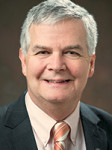State Ranks 41st in Internet Speed
Broadband expansion is badly needed in Wisconsin.
After spending three days in Denver for a Broadband Summit with legislators from across the country, I came away with even more of an urgency to help Wisconsin catch up to other states on broadband internet expansion.
Wisconsin has a lot of opportunity to improve. In 2016, Wisconsin was ranked 49th in the nation for internet speeds according to the technology firm Speedtest. More recently, Wisconsin jumped to 41st for internet speeds. There’s no way around it, we need to provide internet speeds designed to keep up in a global economy.
Speeds may be increasing in Wisconsin, but progress is slow. Slow speeds don’t just force our TV streaming services to buffer. It’s more than that. Internet speeds determine the education of our children, the health care of our sick and the sales of our local economies. Every second counts on the Internet for almost every facet of our lives.
The Federal Communications Commission (FCC) considers broadband speed to be at least 25 megabytes per second (Mbps) while downloading website content and 3 Mbps while uploading. If fiber optics reach your home, speed is not an issue. But in rural areas like mine and many of yours, it’s like riding a moped on the Interstate – you’ll get there eventually, but the rest of the traffic is whizzing by at an alarming pace.
Technology continues to advance with new low-orbit satellites, 5th Generation (5G) capabilities, whitespace technology and fixed wireless antennas. The only tried and true method for delivering the speeds needed for today and tomorrow’s internet is fiber optics. Installing fiber optics may be expensive, but it provides assurance that Wisconsin can compete in a global economy.
Speed isn’t a luxury for internet usage – it’s a must. It’s truly an accessibility issue when determining whether a user has internet or not.
Understanding which speeds are where is another challenge. Wisconsin is not alone. Across the nation, the data informing regulators where broadband exists and where it doesn’t are completely inaccurate. We need honest mapping now.
The FCC uses census blocks to determine what areas are served. Urban census blocks can be as small as a few blocks and rural census blocks can be miles in size. Building broadband maps from these census blocks is a problem because they only show us where broadband MIGHT be available. I say might, because using census blocks, if one house can be connected in that block, then ALL of the homes are considered connected.
Fortunately, the FCC is taking steps to address these egregiously inaccurate maps by using multiple data streams such as shape-file mapping and crowdsourcing. This is important because there is a general belief that 80% of the population is being reached and some of us are skeptical of that claim.
We can’t expand broadband to areas unless we know where it is needed. With the right data, we will not only be able to expand broadband to all areas, but we will be able to effectively lay out our infrastructure more efficiently.
Big things are in store for Wisconsin. During the summit in Denver, we learned about the applications of Artificial Intelligence, Quantum Computers, 10G capability, microbiomes and other mind boggling science. In fact, as we wrestle with decisions on our 5G service, we learned that the science is already complete for 10G service! Technology is advancing at a break-neck pace and Wisconsin needs to keep up.
We need to think ahead for broadband expansion – speeds are the bottleneck of many users and accurate maps are the most immediate issue for understanding where broadband is needed. In my next column, I will be focusing on how we should use our state resources for broadband expansion and new ideas for making progress in our rural communities.
Wisconsin State Senator Jeff Smith represents Wisconsin’s 31st Senate District.
Op-Ed
-
Wisconsin Candidates Decry Money in Politics, Plan to Raise Tons of It
 Dec 15th, 2025 by Ruth Conniff
Dec 15th, 2025 by Ruth Conniff
-
Trump Left Contraceptives to Rot; Women Pay the Price
 Dec 8th, 2025 by Dr. Shefaali Sharma
Dec 8th, 2025 by Dr. Shefaali Sharma
-
Why the Common Council’s Amended Budget is Good Policy for Milwaukee
 Nov 20th, 2025 by Alds. Marina Dimitrijevic and Russell W. Stamper, II
Nov 20th, 2025 by Alds. Marina Dimitrijevic and Russell W. Stamper, II























Our local governments need to be proactive on this issue, in urban and suburban neighborhoods too. Internet access has become as necessary as any of our public utilities, currently left (in urban areas) to the carnivores at your local cable company or sketchy and slow DSL from your landline company. This is not a competitive environment. Agree getting broadband to rural areas now without should take some precedence over areas already served, BUT it seems criminal that streets are torn up to lay new sewer, water and gas lines without any thought of laying fiber optic backbone alongside for a future municipal broadband utility. Senator Smith, is Wisconsin one of the states that restrict municipalities from forming a broadband network? If so, would you support repeal of the restrictions?
While you’re at it, how about allowing Wisconsin residents to purchase and/or service a Tesla without driving to Illinois or Minnesota?